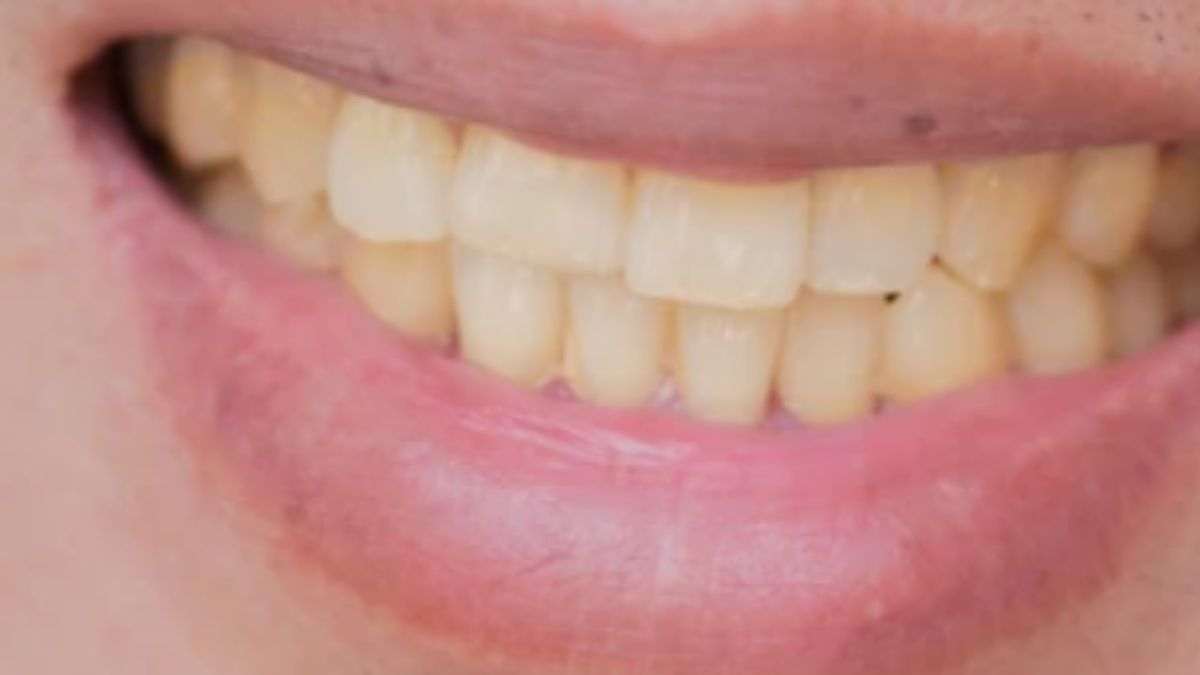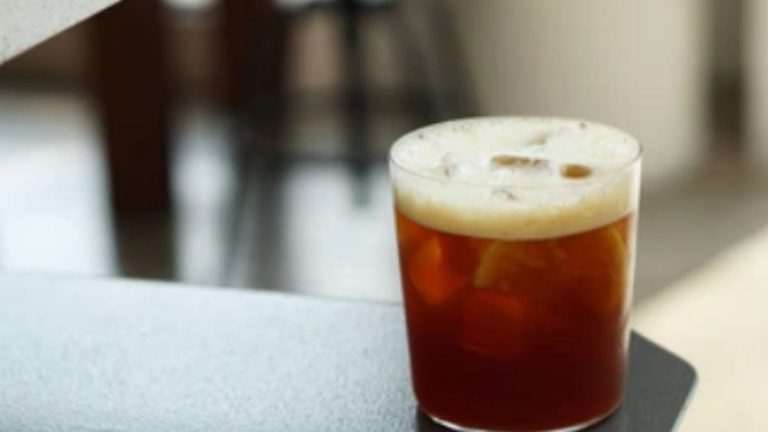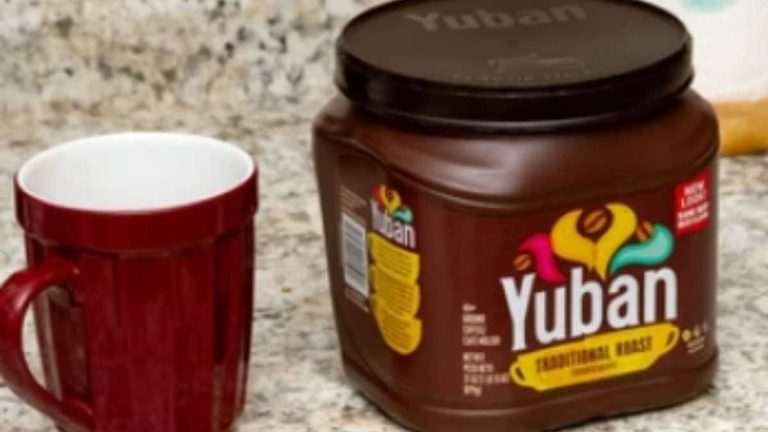How To Drink Coffee Without Staining Your Teeth?
Have you ever asked yourself the question, how do I drink coffee without staining my teeth? Well, if not then ask yourself now. Coffee is delicious and many of us drink it. It is a popular drink. But it is hard to enjoy it without having your teeth stained. So, we have put together this guide for you to know how to stop the coffee from staining your teeth as well as what tips and tricks you can use along with this.
Everybody wants perfect teeth. It’s part of our identity and people judge us on it every day. The color of your teeth is one of the first things people notice about you, especially in business. Before you even open your mouth, your potential customers are already making judgments about you. So today we’re going to look at how to drink coffee without staining your teeth.
Coffee has become a popular beverage over the years, especially among those who love the taste and aroma. But there’s another benefit to drinking coffee, and that is that it can be healthier than other beverages, such as soda or other sugary drinks. Coffee also comes in many varieties and flavors, so even people who don’t like the regular kind of coffee can find one that they do like.
Trouble is, there’s one side effect to drinking coffee, and that’s staining the teeth. If you love your daily cup of java, you might notice that your teeth are starting to look more yellow than they used to be. This happens because coffee contains a substance called tannin. Tannin is what colors the water when a leaf falls into it – and it also causes stains on teeth.
Thankfully, there are several things you can do to prevent coffee stains from forming on your teeth:
Drink through a straw – When you drink coffee, especially black coffee, some of it goes on the inner layer of your lips. The next time you go to drink something, put a straw in it so that all of the liquid goes into your mouth instead of onto your lips. This will keep some of the coffee from staining your mouth.
Even if you don’t normally use a straw, try it when drinking coffee or tea. The straw will prevent the beverage from coming into contact with your teeth, which will help you avoid staining your teeth.
Also, rinse your mouth out with water after drinking coffee or tea. Rinsing your mouth out with water will help wash away any excess stains from your teeth, helping to remove any chance of staining. The more water that you drink throughout the day, the better!
Floss – Flossing will remove any leftover particles from between your teeth that could potentially stain them.
You can also:
1. Brush your teeth right away.
2. Use an at-home whitening system.
3. Go to a dentist.
4. Whiten with baking soda and lemon juice.
5. Try oil pulling.
6. Use hydrogen peroxide and baking soda.
The Primary Causes of Enamel Stains
Table of Contents
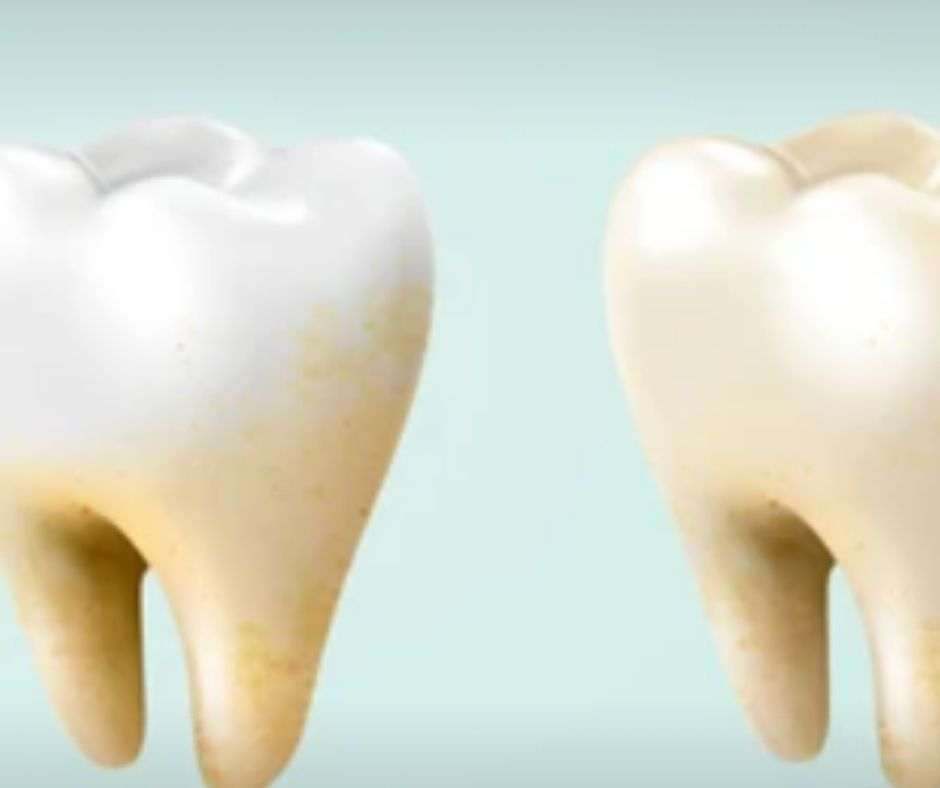
Unfortunately, it can be quite easy for you to develop stains on your teeth. This is a problem that has plagued many men and women. But what are the primary causes of enamel stains? It’s not just brushing too hard or drinking coffee. It is important to understand what causes enamel stains so you can seek professional help if you need to.
Having white teeth is very important for a healthy-looking smile. Most adults prefer light and natural smiles with whiter teeth. Teeth stains can diminish the beauty of your smile making it dull.
Enamel is the hardest substance in your body. It’s also known as teeth, and it is a mineralized tissue that covers your teeth. When it has stains, we call it dental stain, which can be removed through professional or home dental treatments. Some of the most common causes of enamel stains are listed below:
Genetics: You may have noticed that some people have a tendency to get food dye stains on their teeth more than others even if they brush regularly. This is because genetics play an important role in enamel formation and health. For example, if your mother had stained teeth when you were growing up, then there is a good chance that she will pass it on to you. Such genetics determine how much fluoride concentration is required in the saliva to keep your teeth healthy. If the levels are not adequate, then staining occurs.
Poor Oral Hygiene: Poor oral hygiene means a bad diet and not brushing regularly or after meals. Enamel is made up of two parts – rods and cones – which give strength to the tooth structure but are very sensitive to acids and bacteria. Saliva cleanses the mouth thoroughly so that these areas remain healthy and strong.
Foods and drinks. Foods such as berries, red wine, coffee, and tea have been known to stain teeth over time. Consuming dairy products like yogurt or cheese can also lead to discoloration over time. Dark-colored fruits and vegetables like eggplant or beets are not recommended for those with white teeth because they tend to leave behind stains.
The coloring in some foods and beverages can penetrate your tooth’s outer surface, making it more difficult to remove the discoloration later on. If you want to prevent staining from occurring in the first place, brushing after consuming acidic or sugary foods is recommended.
How do you prevent coffee from staining your teeth?
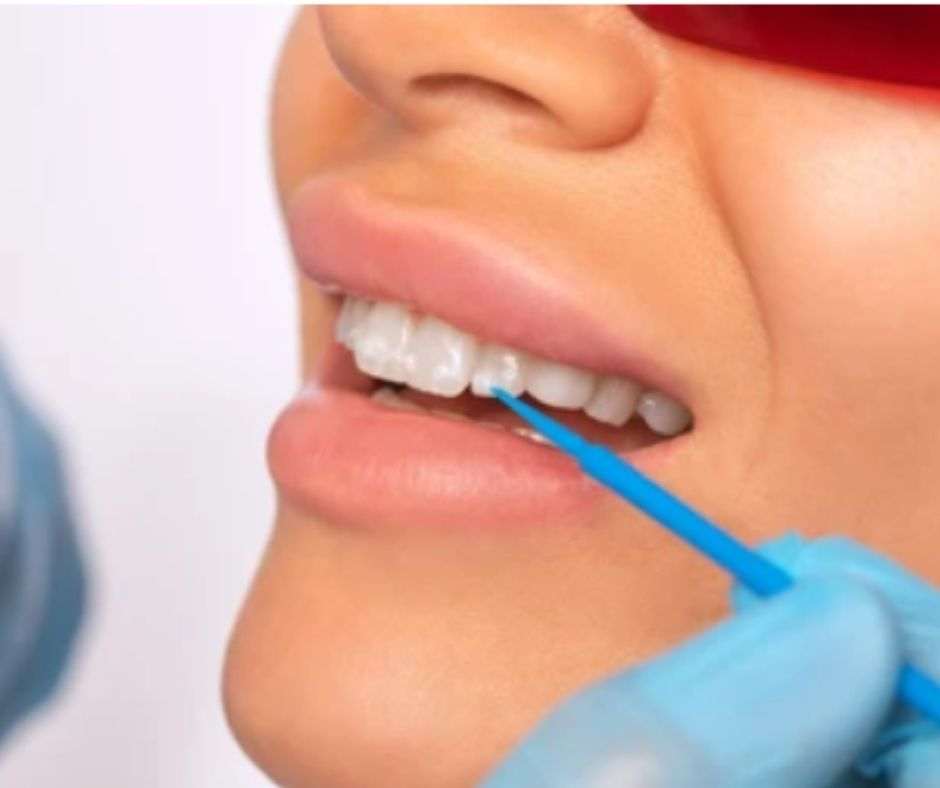
Everyone knows that the best part about drinking coffee is the taste. However, for many people, there are some downsides to consuming this delicious beverage. When you drink coffee, it is possible for it to lead to teeth staining. Coffee is not the only culprit of staining your teeth — tea, soda, and red wine also play roles in staining teeth. Luckily, we are going to discuss how you can prevent coffee from staining your teeth.
We all know that one person has a beautiful smile, but when you look closely, you see little brown spots on their teeth. They’re usually a telltale sign of coffee or tea drinkers. However, there is a way to avoid this unsightly staining.
Tannins in coffee and tea are the main culprits of staining your pearly whites. Tannins are compounds in plants that give them color and protect them from UV rays. The same compounds are found in many fruits and vegetables, like blackberries, blueberries, cranberries, and red wine, among others. These tannins can also stain your teeth if you drink too much coffee or tea.
The best solution is to avoid drinking coffee or tea altogether, but that’s easier said than done for most people. If you don’t want to give up your daily cup of joe (especially if it’s caffeinated), try these tips to help reduce the staining:
Drink your coffee or tea with milk or cream – Milk and cream have a protein coating that can help prevent the tannins from staining your teeth; the fat helps keep them at bay. The fattier the milk or cream, like heavy cream, for example, the better!
Regular mouthwash may also help in removing stains from your teeth. Mouthwash may be able to penetrate into the crevices where stained particles have settled and dissolve them for easy removal. Using mouthwash after drinking coffee can also help kill off bacteria that settle in the crevices of your teeth from drinking coffee — removing this bacterium will reduce tooth decay and plaque buildup.
Is there a coffee that doesn’t stain your teeth?
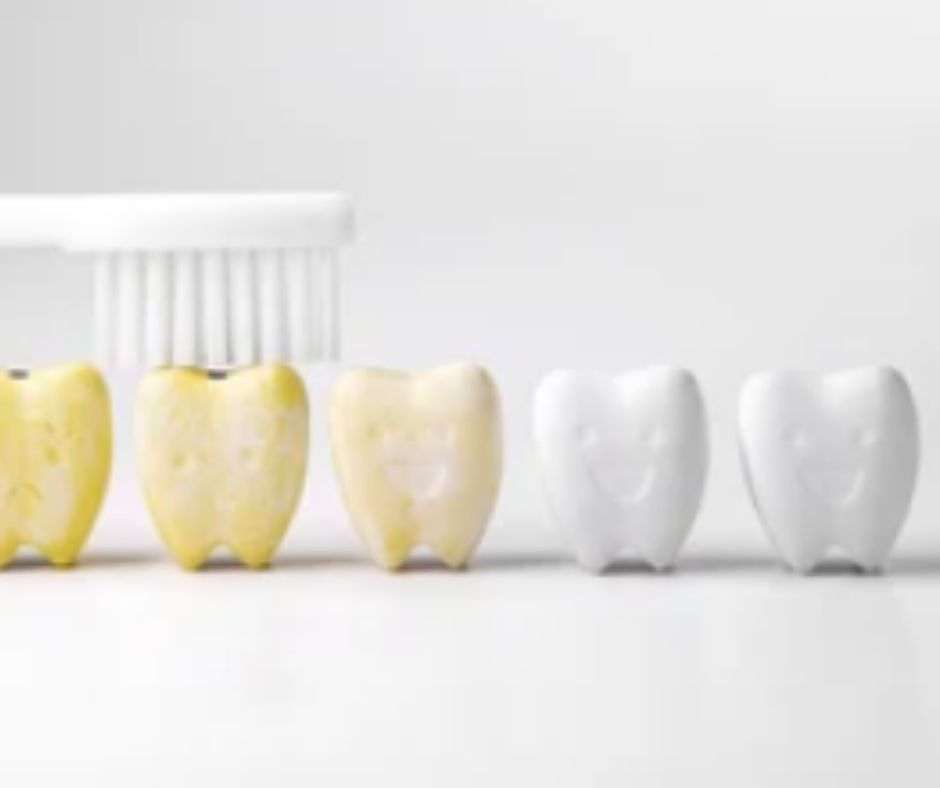
There are two main types of coffee: Arabica, which is the most prevalent species of the coffee plant, and Robusta, found in more commercial varieties. Arabica beans are more delicate than Robusta beans, making them harder to stain your teeth.
Tannins, a chemical compound in coffee beans, tend to be responsible for staining teeth. Arabica beans contain far fewer tannins than Robusta beans—in fact, no Robusta bean has any trace of tannins at all. This is why it’s easier to avoid staining your teeth when drinking Arabica-based coffee.
The same goes for milk and sugar—both of which can cause staining if not taken in moderation. Milk contains lactose, a type of sugar that can stick to your pearly whites through bacterial fermentation. When you drink milk or other sugary liquids like soda with your coffee, the sugars remain longer on your teeth and encourage the growth of bacteria. The bacteria then eat away at the hard enamel coating your teeth and make them more susceptible to stains.
Your best bet is to drink your coffee black or with as little sugar as possible—just like you should do with all foods and drinks that contain sugars! Remember to brush your teeth too
Does coffee actually stain your teeth?
This is a question that many of us have asked ourselves at one time or another. Coffee certainly isn’t good for the teeth because it contains a lot of harmful substances. Not only can the caffeine in coffee cause teeth to decay, but the tannins contained in coffee can also be harmful to them.
Tannins are found in tea, red wine, and many berries and they are what give these products their bitter taste. When these tannins come into contact with your teeth, they produce an effect called “ochre-staining” which is characterized by yellowing of the teeth. The darker your drink, the more noticeable this stain will be on your teeth.
In order to avoid this kind of staining, you should try to avoid drinking coffee or other dark drinks for about an hour after eating food or drinking milk. If you drink dark-colored beverages and then consume food or milk shortly afterward, it may stain the outside layer of your teeth and make them appear yellow or even brownish in color.
You should also try to avoid brushing your teeth for at least 30 minutes after having a caffeinated beverage because doing so might damage the enamel on your teeth making them even more susceptible to discoloration.
Can we drink coffee without brushing teeth?
I was having a cup of coffee with a friend the other day and she asked me, “If I don’t brush my teeth for a day or two, can I drink coffee without mouthwash?” The question is an interesting one. Coffee is acidic and can leave your mouth feeling dry and yucky if you drink it without rinsing afterward.
How long do you have to wait before brushing your teeth after drinking coffee?
Drinking coffee without brushing teeth is fine if you only do it occasionally. If you drink coffee every day, though, the acidity of the beverage can lead to erosion of tooth enamel over time. That’s because enamel thins as we age anyway, but it can be made worse by drinking highly acidic beverages like coffee. The acid in coffee mixes with calcium and magnesium in saliva to create a softening solution that erodes tooth enamel over time.
We wouldn’t recommend consuming coffee two hours before brushing your teeth. Your saliva doesn’t begin to flow until about 20 minutes after you wake up, so if you wake up at 6:00 am, don’t drink anything until at least 6:20. If you are going to consume caffeine in a beverage during the morning hours, be sure to rinse your mouth out with water afterward.
Will my teeth get whiter if I stop drinking coffee?
If you drink a lot of coffee or tea, you notice how the cups seem to gradually turn darker over time. The tannins in the beverages are leaching out and staining your teeth in the process. Some people will say they notice a difference as soon as they wake up in the morning because of how much coffee and tea they drank the night before.
The good news is that it is possible to whiten your teeth naturally and without having to visit the dentist for expensive treatments. The bad news is that it requires discipline and dedication on your part. You have to cut out all foods containing tannins for a period of about 30 days then start eating them again for another 30 days and repeat the cycle until your teeth reach your desired color. Before you consider this option, make sure you want whiter teeth because once you start this process, there is no turning back.
To whiten your teeth, you need to reduce your tannin intake. If you’re a regular tea or coffee drinker then it may be worth looking into an alternative form of caffeine such as an energy drink or soft drink which contain less tannin than tea or coffee.
Toothpaste containing natural abrasives such as baking soda or crushed walnut shells can also help to remove stains. However, these toothpaste can be quite abrasive so if the patient is sensitive, it may cause discomfort when used on a daily basis. If you are looking to whiten your teeth but are worried that reducing your tannin intake may cause you to give up the drinks that you love, there are other solutions available that can mask the color of your teeth whilst still providing you with the flavor of your favorite beverages.
Does drinking coffee with milk stain your teeth?
If you love taking your coffee with a dash of milk, you might be concerned about the effect it has on your teeth. While it is true that drinking coffee with milk can stain your teeth, you should not worry too much about it. It is possible to reduce the staining effects: just don’t leave the coffee and milk in contact with your teeth for too long.
The reason why coffee and milk stain your teeth is that it contains substances called tannins, which are present in all types of tea, including black tea as well as coffee. Milk also contains tannins. The combination of these two ingredients causes a chemical reaction that results in staining your teeth.
There are a number of things that you can do to reduce the stains:
You can always use a straw to drink your coffee. This way, the fluid will not come in contact with your teeth for too long and hence reduce the damage caused by stains. You should brush your teeth immediately after drinking coffee or any other beverage that contains tannins, such as black tea or red wine. If you want to add some flavor to your coffee, try adding cinnamon or cocoa powder instead of sugar or honey, because they do not contain tannins. Regular brushing and flossing will also do.
Conclusion
As you can see, there are many ways to maintain the whiteness of your teeth. Keep in mind that staying away from coffee is not the only way to avoid stains on your teeth. Be sure to take care of your teeth in other ways, like brushing and flossing, to keep the coffee stains from forming.

